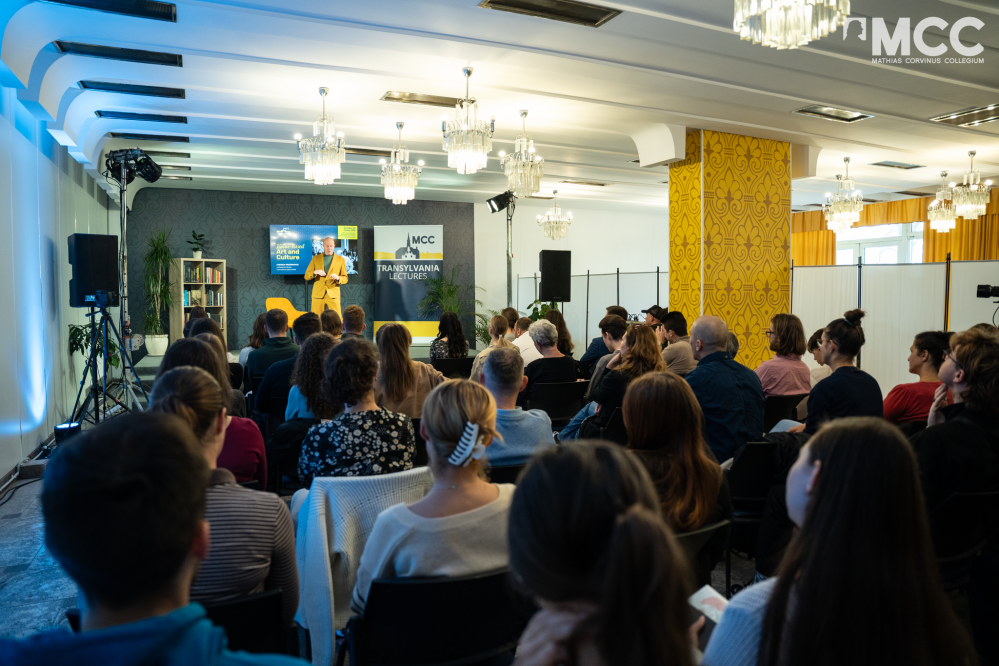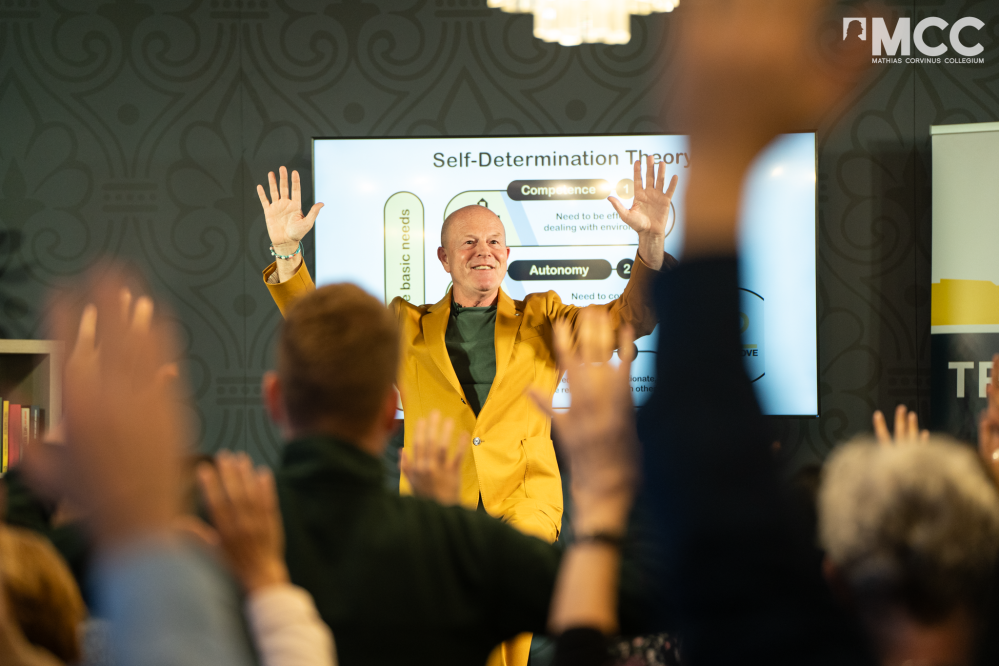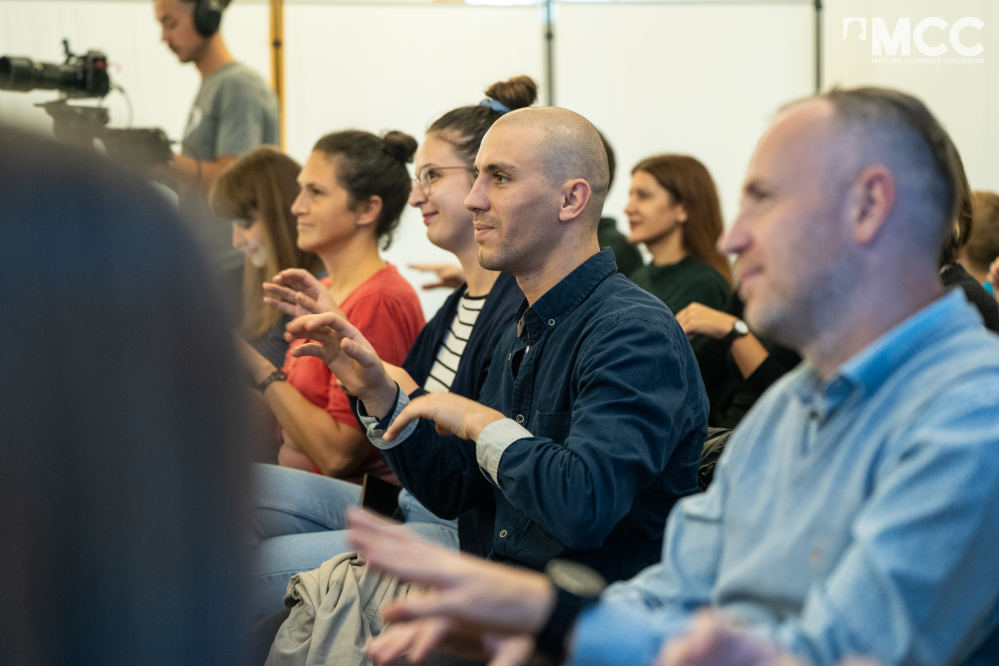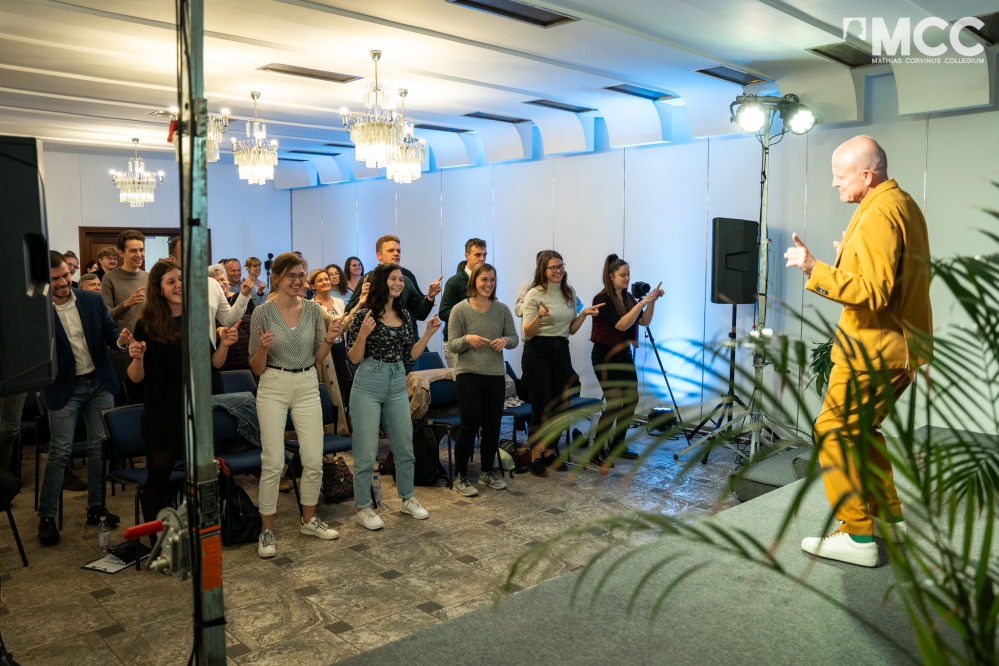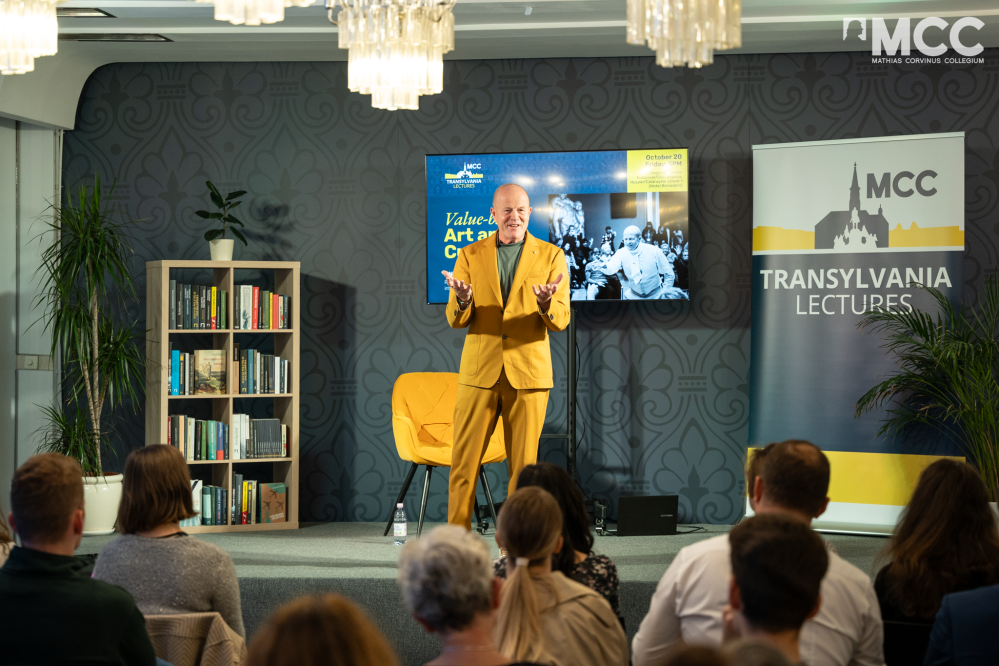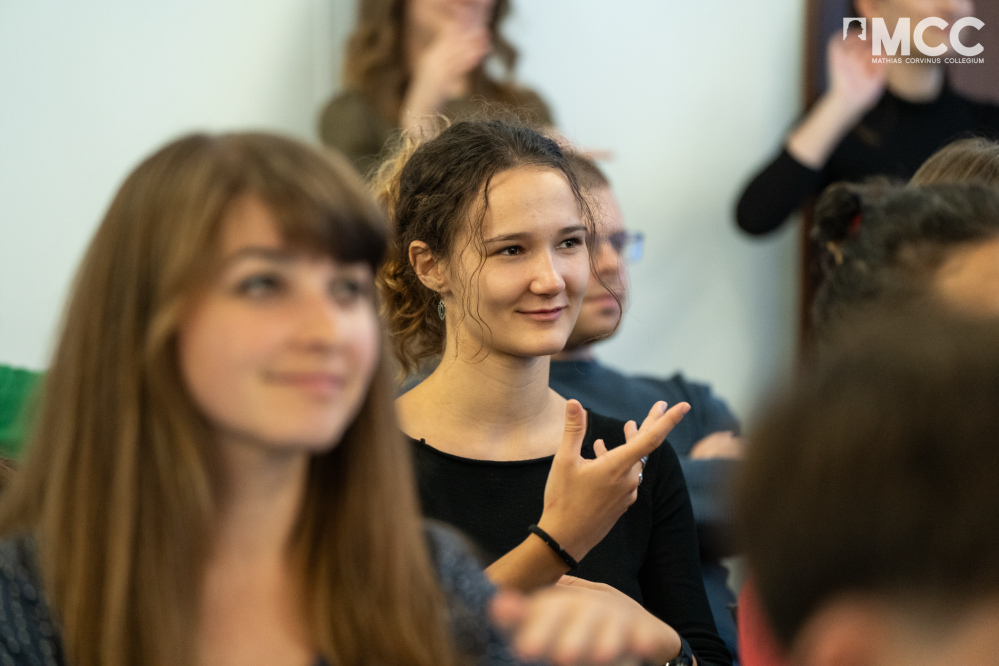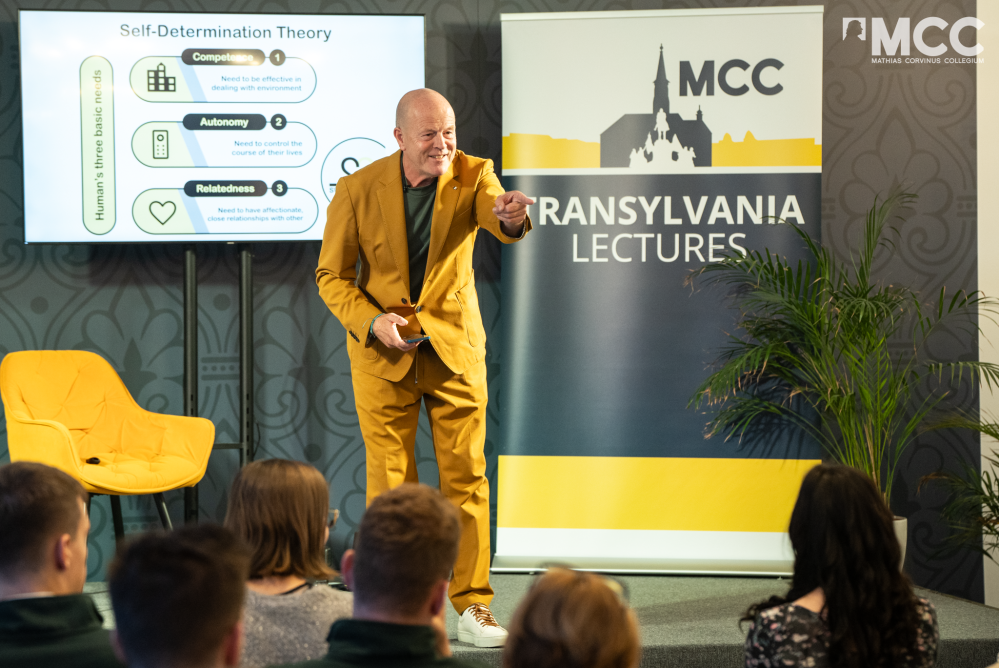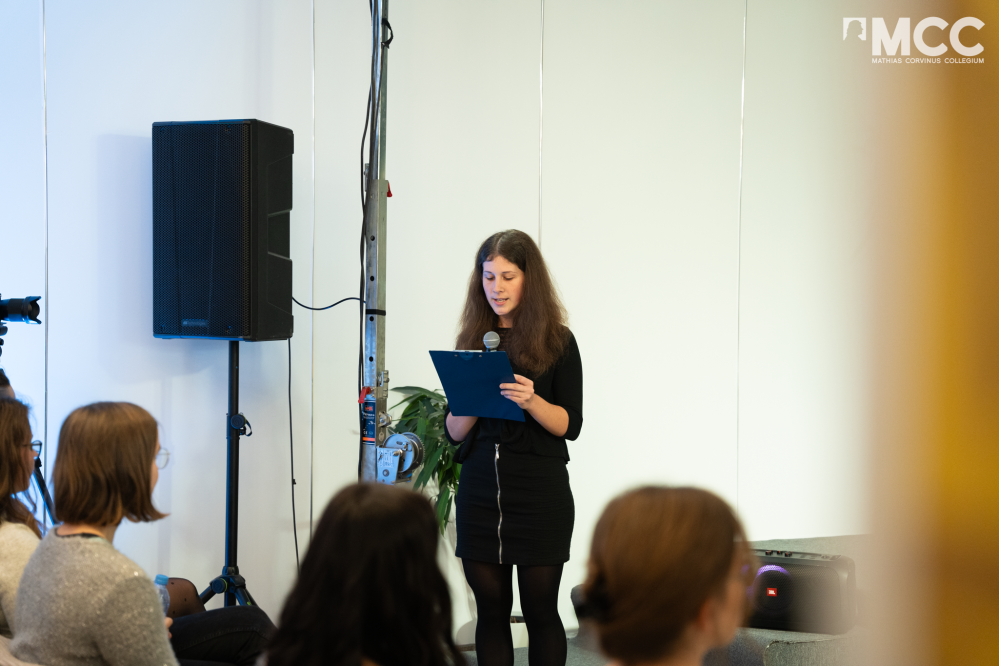Reading time: 4 minutes
The best way for older people to reach a high age and achieve better quality of life and prevent illnesses is for them to have goals, independence, and dignity – said Andrew Greenwood, a professional dancer and internationally acclaimed ballet master, who helps people with both mental and physical difficulties with his unique dance and movement therapy. Mathias Corvinus Collegium (MCC) has invited Greenwood to hold an interactive presentation on the 20th of October, as part of the Transylvanian Lectures series.
Andrew Greenwood was born in London and graduated from one of England’s most reputable ballet schools. He founded the Dance for Health Foundation in 2012 in the Netherlands with a fellow artist suffering from Parkinsons disease. The organisation aims to provide old and ill people with goals, dignity and independence – all this, through art. As the head of education and research for the last three years, over 40 teachers have been educated internationally under his mentorship and classes were established for Parkinson’s and Multiple Sclerosis in cities in the Netherlands, Italy and Australia. As a creator of Swicth2Move he is thriving in sharing his method in how to enhance the life of people with chronic physical or mental impairments.
At the lecture Andrew Greenwood shared his personal experiences, provided scientific basis on which he worked out his methods, all the while making sure that the participants tried some new dance moves too. The artist works with people who live in pain and have incurable illnesses. One of his primary goals is to stir those participating in his workshops to discover and embrace their identities. This is because society – though well intended – tends to dehumanize them, their illness becoming their whole identity. „Art isn’t the new magic pill, but it gives people the opportunity to find themselves and express their identities again”, emphasized Greenwood.
If someone who suffers from Parkinsons disease starts dance therapy at an early stage, it significantly reduces progression of the illness. People from all walks of life participate at the dance workshops, many of them skeptical in the beginning. To them, Greenwood reassures: „It’s okay for me to challenge you now, put you in a bit of an uncomfortable situation, push your limits. This is precisely why you will live a longer life.” In fact, just being present at a workshop is beneficial, seeing as even observing dance has positive effects on the brain.
Those suffering with dementia need to be able to utilize their environment efficiently, lead their lives independently and to nurture loving, meaningful relationships with others. These are exactly the pinpoints that the Switch2Move method is tackling. It also aims to create a useful and accessible alternative to the burdens and obstacles of the healthcare system. According to the most recent research, participants of the program show regular, stable levels of cognitive functions, furthermore, they are able to live their lives independently, in the comfort of their own home, for a prolonged period of time. The activities also teach partners of the disabled or ill, the movements can be done either together or individually.
Of course, it was difficult to get funding for the initiative in the beginning, however, as time went on, art therapy turned out to be a viable economic product. Moreover, it seems that financing a person’s movement therapy is less burdensome for the state, than paying for a patient who has reached a state of requiring palliative care. Throughout the years, the organization acquired more and more funding, so much so that today there are more than 40 active groups in the Netherlands, that provide not only the beneficial effects of dance, but also supportive communities with precious connections. The founders of the initiative have named this type of therapy “non-pharmacological complementary interventions”, and true to their word, they accomplish improvements in the lives of ill people without medication. For example, with the help of the University of Eindhoven, they have developed an app which, with the guidance of a compass, always shows the person with dementia the way home. There has also been a case where a person who hasn’t been able to get up from their wheelchair in seven years managed to stand up during one of the workshops.
To the audience’s question regarding how best to conserve our health, Andrew Greenwood said: it’s worth finding new situations, trying new things each day, and to try and shake up the patterns we are used to. And dancing is a wonderful way of doing this, even if it’s only in the comfort of our own home: „Serotonin, dopamine, oxytocin – we are walking-talking cocktails, and dance shakes up this cocktail!”
